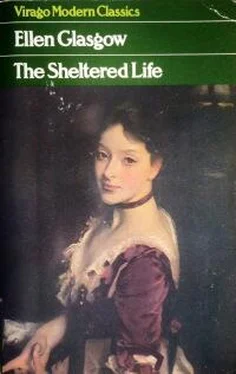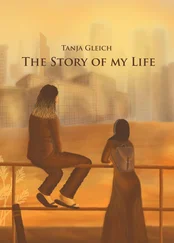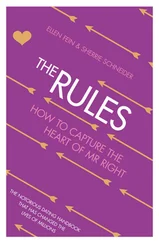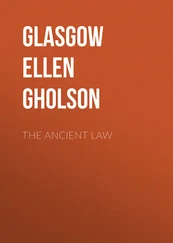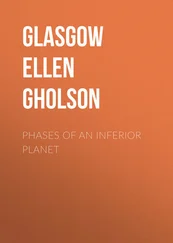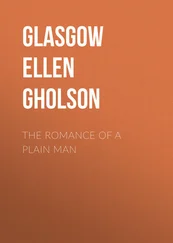Ellen Glasgow - The Sheltered Life
Здесь есть возможность читать онлайн «Ellen Glasgow - The Sheltered Life» весь текст электронной книги совершенно бесплатно (целиком полную версию без сокращений). В некоторых случаях можно слушать аудио, скачать через торрент в формате fb2 и присутствует краткое содержание. Жанр: Классическая проза, на английском языке. Описание произведения, (предисловие) а так же отзывы посетителей доступны на портале библиотеки ЛибКат.
- Название:The Sheltered Life
- Автор:
- Жанр:
- Год:неизвестен
- ISBN:нет данных
- Рейтинг книги:5 / 5. Голосов: 1
-
Избранное:Добавить в избранное
- Отзывы:
-
Ваша оценка:
- 100
- 1
- 2
- 3
- 4
- 5
The Sheltered Life: краткое содержание, описание и аннотация
Предлагаем к чтению аннотацию, описание, краткое содержание или предисловие (зависит от того, что написал сам автор книги «The Sheltered Life»). Если вы не нашли необходимую информацию о книге — напишите в комментариях, мы постараемся отыскать её.
The Sheltered Life — читать онлайн бесплатно полную книгу (весь текст) целиком
Ниже представлен текст книги, разбитый по страницам. Система сохранения места последней прочитанной страницы, позволяет с удобством читать онлайн бесплатно книгу «The Sheltered Life», без необходимости каждый раз заново искать на чём Вы остановились. Поставьте закладку, и сможете в любой момент перейти на страницу, на которой закончили чтение.
Интервал:
Закладка:
"Oh, John, don't say things like that," she broke in hurriedly; for she had seen the curtain at Mrs. Birdsong's window blow out in the sunlight, and that blown curtain had started a strange flutter in all the nerves of her body. Was he standing there at the window? What had happened? Was he really as indifferent as he appeared? Or was he only pretending? Aloud she said in a vacant tone, "You ought to be careful how you talk. People won't want you for a doctor if they think you're not normal."
"You're right," he assented moodily. "I've never talked this way before, not even to your grandfather. Most people would tell you that I'm no worse than a crack-brained Socialist. But something upset me this morning. There was an accident down at the chemical plant, and the helplessness of the poor always makes me see red when I come up against it like that. Especially when there's a fool of a philanthropist standing by who has learned nothing more from two thousand years than 'ye have the poor always with you.' No, I'm not joking. That actually happened. She thinks I'm disqualified as a physician because I told her that poverty is a social disease and should be wiped out like smallpox."
"I must go now. There's Mamma looking for me." She smiled plaintively, as she turned away, and looked back to say over her shoulder, "I'll ask her to find out his name and send some soup to the man who was hurt. Mamma is always doing something for somebody." Oh, yes, she knew, she knew; but she couldn't (and it wasn't her fault) find the poor interesting. She loved life, and she wanted to be happy; and if John called that the sparrow vision—well, there was nothing she could do about it. If attending to your own happiness meant the sparrow vision of life, that vision seemed to her to have its advantages. But the poor, and John also, had been different before she had fallen in love. Perhaps when this ache of hope that was not hope passed out of her heart, she might feel sorry for other people again.
"Well, that's all. Good-bye!" he called derisively.
"Good-bye. I'll see you at the station to-morrow."
On the steps she turned again and looked after him as he walked away from her. "I despise him," she said in a whisper; but she was not thinking of John Welch, she was not even seeing him.
CHAPTER 8
"I didn't speak to him," Jenny Blair said to herself while the train moved away. "He couldn't make me speak to him, not even at the very last minute."
A wave of exultation swept over her. She heard again, with a difference, that strange whisper of excitement among the images in her mind. These images were still vague, but they had ceased to be colourless. Glow and rhapsody were in this thrilling suspense, this burning light that streamed into her thoughts. Though she had not spoken to him, though she had not even looked at him until the last, she had known that he remembered. Without glancing in his direction, she had felt that he was seeking her eyes, that he was asking her to forgive him. But she had resisted. Gravely and tenderly, she had kissed Mrs. Birdsong; gravely and kindly, she had shaken Berry's hand and told her to take care of her mistress; gravely and indifferently, her eyes had wandered from John Welch to her grandfather and from her grandfather to the train that was waiting.
"Good-bye, Jenny Blair," George had called as he stood on the platform. "Good-bye, Jenny Blair, will you look after my mint bed?"
Though she did not reply by a glance, she knew, without seeing him, how attractive he looked, and how young for his forty-odd years. She knew how fresh and gay he always seemed on a summer morning, with the ruddiness of health in his face and the mockery in his near-sighted eyes narrowing down to an imperative flash. "I know he's old," she thought, "but I don't mind. I don't mind about anything. He will be back in three days. I have only three days to wait." She did not ask herself for what she was waiting. Beyond the glowing sweetness of the present there was a virgin wilderness of mystery and delight. "Three days," she repeated, "three days are not long. In three days he will be back in Queenborough, and then I may see him. Even though I never speak to him, I shall be able to see him again." Then, as the train moved out of the station, she raised her head and looked after him, with eyes that were grave, questioning, unabashed, and eager for life. She looked after him until, smiling back at her, his figure melted, with the flying train, into the blue distance.
"What do you think of her this morning?" General Archbald inquired of John, as they turned away and walked back through the station. "Do you feel easy?"
For an instant John hesitated; then he parried defiantly, "Do you, General?"
The old man flinched. "I was shocked to see her," he replied, and pressed down on his walking-stick.
"Well, you had seen her only in bed. She always looks better in bed. I hope," he added briskly, "this change will be the very thing that she needs."
"It may be," the old man assented, and then, as John did not speak, he continued in a troubled tone, "There is a look in her face I don't like. I had never seen it until to-day. The look of defeat."
"So you've noticed that. Yes, I can't understand it. But then, one never knows everything."
"I've seen that look often before, but there was always some cause I could explain. I saw it in many faces after the war, and in many more faces while Reconstruction lasted. But those were times that shattered men's nerves."
"I don't know and I refuse to guess," John said slowly. "If I did guess, I should put it down to the long strain, the unnatural life she has led. She was not meant for poverty and insecurity, and yet she has had both." He shook his head as if he were trying to rid himself of a gnat. "Yes, I hope this change will be the very thing that she needs."
When they reached his car, General Archbald climbed in with an uncertain step, and put his arm about his grand-daughter, who had not spoken a word since she had watched the departing train. His knees were still shaking from the effort to walk straight without help.
"Will you go up with us, John?"
"No, thank you, General, I must rush off to the hospital. Jenny Blair is looking well, isn't she? Or is it that pink lining under her hat?"
Turning to glance at the girl, as the car moved away, the old man was startled by the change in her expression. What was the meaning? he asked himself. Was it only the pink lining under the transparent brim of her hat? Or had she sprung up in a night with the dew on her freshness? The tender contour of her features was still empty; but there was a burnished glow on her skin and hair, a richer and deeper gloss, as if some shining fluid saturated her body. Yet her eyes, more golden than hazel in their dark setting, were unabashed and exultant beneath the shallows of innocence.
"Are you all right, my child?" he asked, pricked by an uneasy presentiment. "Nothing is wrong, is there?"
"Oh, nothing." She seemed to be waking from sleep.
"You look unusually well, but you seem quiet."
"I've been thinking--" She broke off, suppressed a yawn as she looked out of the window, and left her sentence unfinished.
"Did John depress you? Are you anxious about Mrs. Birdsong?"
"Oh, yes!" She grasped the idea with eagerness. "I am dreadfully anxious about Mrs. Birdsong."
"Well, you must remember that all young physicians are inclined to be serious."
"But she looked so ill, Grandfather. I heard old Aunt Betsey tell Berry this morning that death was in her look. She hadn't seen her since she left the hospital. You know Aunt Betsey went to live in Goochland after she got too old to work."
"She ought not to have said that." The General was disturbed, and he showed it. "That's pure superstition. Coloured people see entirely too much."
Читать дальшеИнтервал:
Закладка:
Похожие книги на «The Sheltered Life»
Представляем Вашему вниманию похожие книги на «The Sheltered Life» списком для выбора. Мы отобрали схожую по названию и смыслу литературу в надежде предоставить читателям больше вариантов отыскать новые, интересные, ещё непрочитанные произведения.
Обсуждение, отзывы о книге «The Sheltered Life» и просто собственные мнения читателей. Оставьте ваши комментарии, напишите, что Вы думаете о произведении, его смысле или главных героях. Укажите что конкретно понравилось, а что нет, и почему Вы так считаете.
